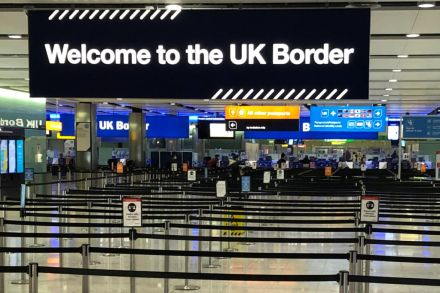Why haven’t we shut the UK border already?
‘This country has not only left the European Union but on January 1 we will take back full control of our money, our borders and our laws,’ said Boris Johnson in October last year. The transition period is now over; we are out of the single market and customs union, which means freedom of movement of people is at an end. The UK has total control over its borders (other than the one on the island of Ireland, but let’s not go there today). So it is worth asking why the government is choosing not to exercise this right in anything approaching an appropriate manner at present, particularly when such




















